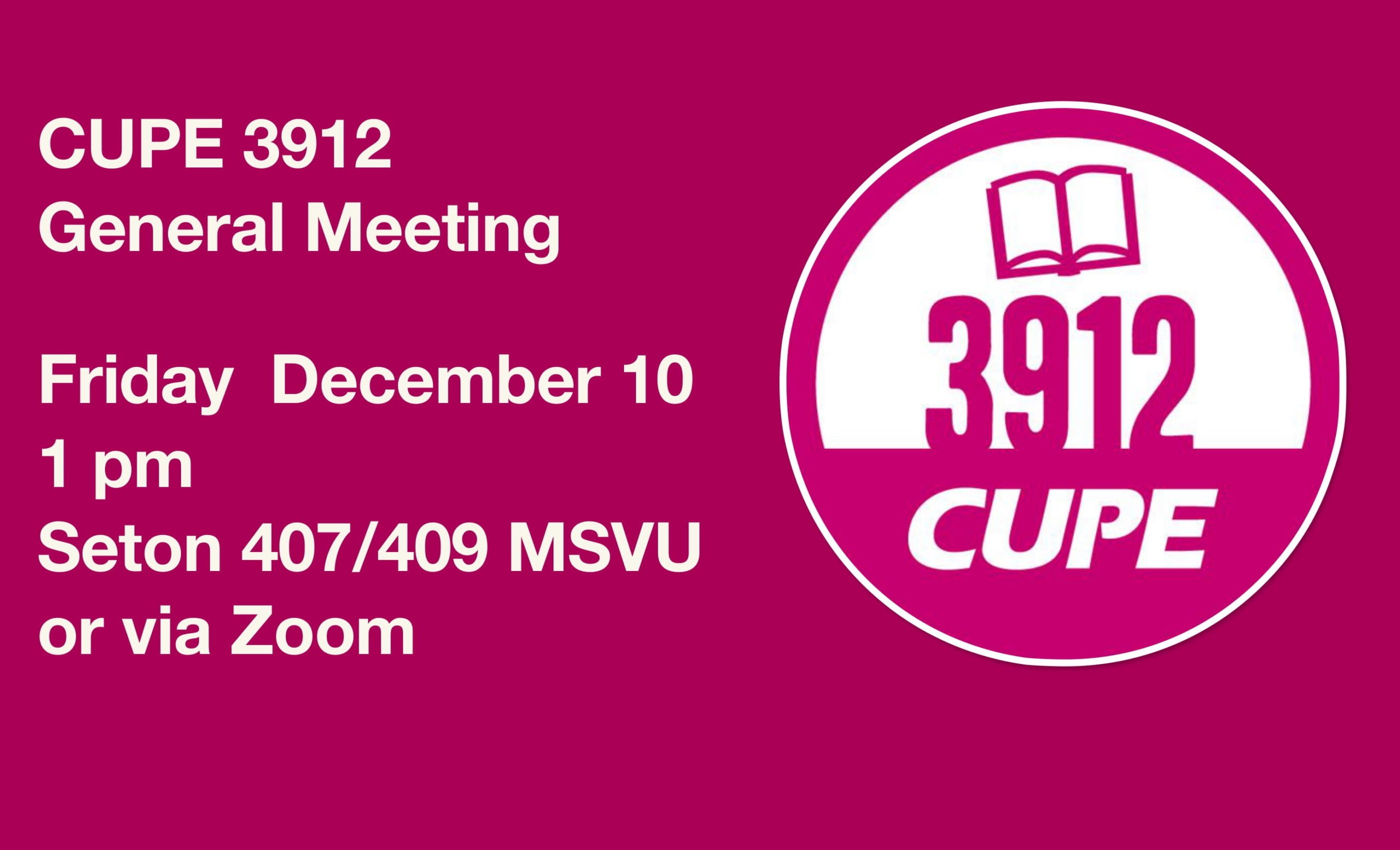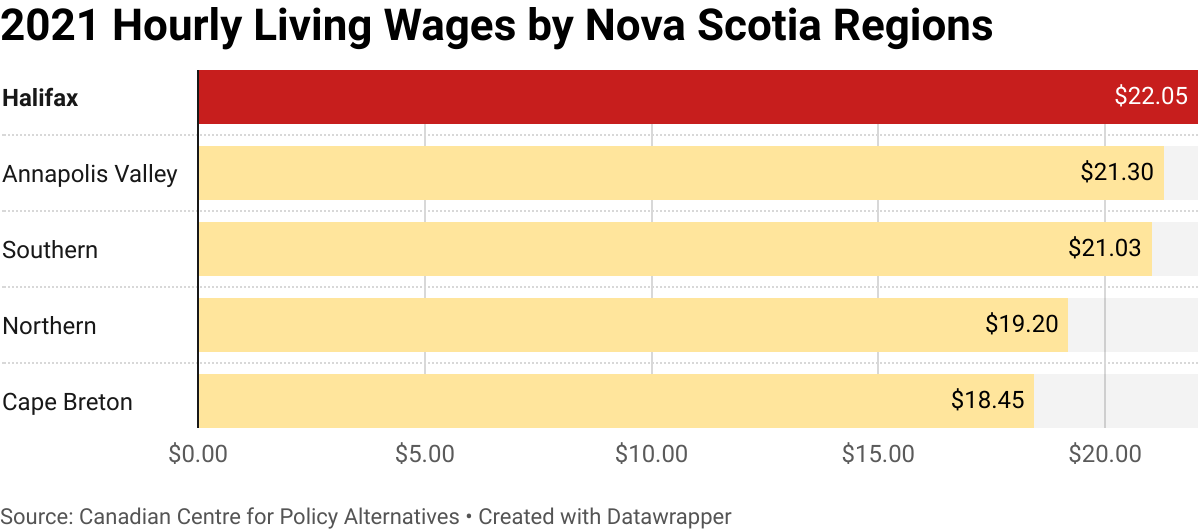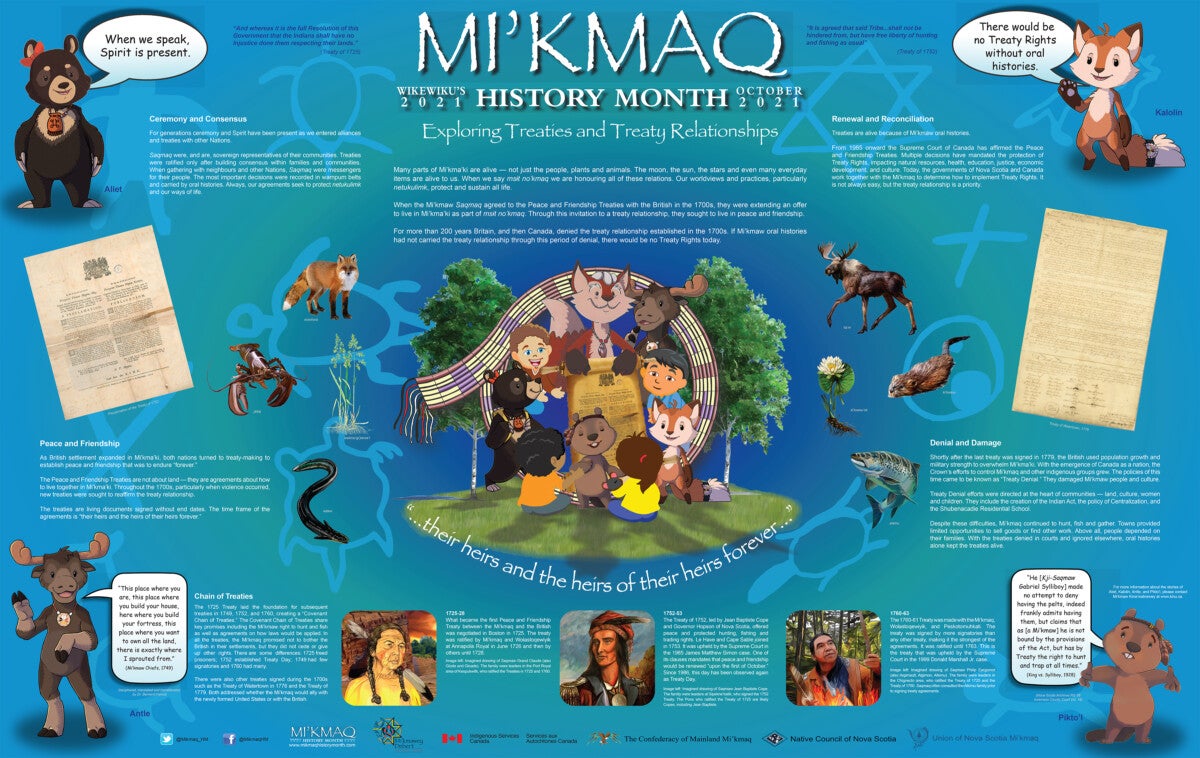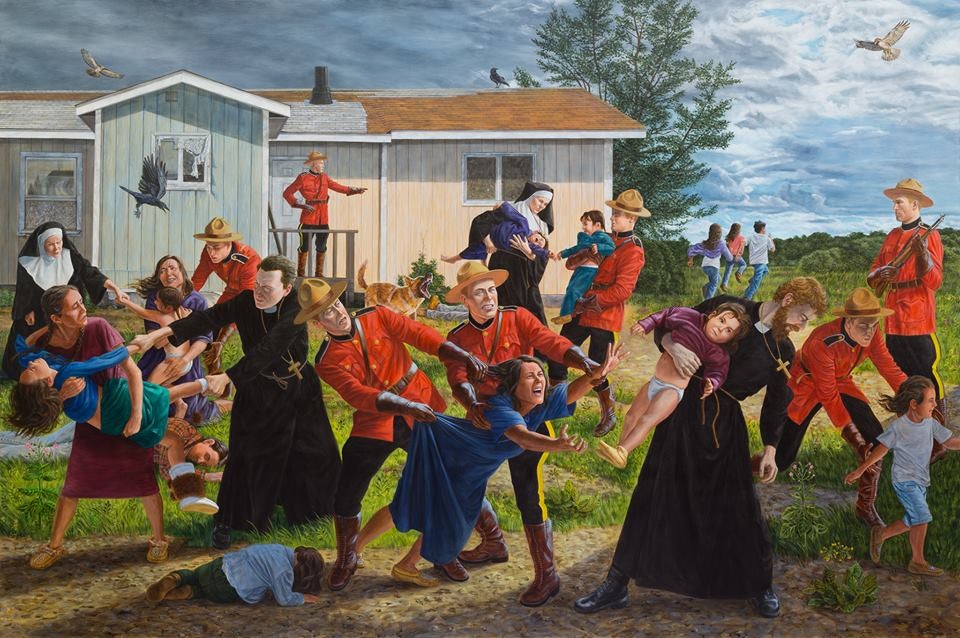Check out our latest newsletter, which includes:
- President’s Update
- Inflation During Pandemic and Bargaining Times
- Survey Says . . . On Contributing to Improvements in TA/Marker Working Conditions
- In Memoriam, Pat O’Neill
Check out our latest newsletter, which includes:
We had bargaining days at Dal and the Mount last week.

Our general meeting is Friday December 10 at 1 pm. It will include:
This is a hybrid meeting. You can attend in person at Seton 407/409 at MSVU, or via zoom.
Please RSVP for the meeting with our Membership Officer, Kim Robinson by December 9 and indicate if you will attend virtually or in-person.
Proof of vaccine required for in-person attendance.

The Canadian Centre for Policy Alternative-Nova Scotia calculated the hourly wages a person needs to earn to pay for their basic needs, given the costs, available government supports and services, and norms of a specific region.
Considering how many hours you actually work to earn your salary, are you making a living wage?
We do not have bargaining dates until late November. We know that bargaining is taking a long time. There are several reasons for this:
Last week the focus for bargaining was on Dalhousie with a day and a half of bargaining. We discussed a lot of proposals including our common proposals, TA-specific proposals and a proposal to update hiring processes towards continuing appointments similar to the one we proposed at SMU. As at SMU, it looks like we are coming to an agreement for several proposals but are still negotiating some of the wording.
Our CUPE rep is not available most of November so our next dates at all three universities are in late November or December. We are booking dates well into January so we can make sure to reserve as much time as possible for bargaining.
We had three afternoon bargaining sessions at SMU in quick succession (Oct. 7, 12, 14).
The only thing we discussed is a set of proposals to update the hiring and appointment processes towards continuing appointments, one of our bargaining priorities. After a few exchanges it looked like we were coming to an agreement but we are still negotiating some of the wording.
Our CUPE rep is not available most of November so our next dates at all three universities are in late November or December. We are booking dates well into January so we can make sure to reserve as much time as possible for bargaining.
Upcoming bargaining sessions:
We had a ‘reset’ bargaining meeting where we discussed plans for returning to bargaining. It was the first time we met with the employer at the bargaining table since May 2021.
We are hopeful negotiations will proceed effectively and efficiently; however, we could only plan for dates in December 2021 due to our lack of availability. (It is difficult to schedule bargaining dates with 3 employers.)
Upcoming Bargaining Sessions:

October 1 is Treaty Day in Mi’kma’ki. The purpose of Treaty Day is to promote the public awareness of Mi’kmaq history and culture for all Nova Scotians, and to recognize the continued importance of these treaties.
In 1986, Grand Chief of the Mi’kmaq nation, Donald Marshall Sr., invited all Mi’kmaw to “observe October 1, 1986, and every year thereafter as Treaty Day to commemorate the unique and special relationship that exists between the Mi’kmaq and her Majesty.” Since then, on this day, all people in Nova Scotia are invited to remember and reaffirm the treaties signed between Mi’kmaq People and the British Crown.
Similarly, since 1993, October has been recognized as Mi’kmaq History Month. This is a month to celebrate Mi’kmaq culture and history. Across the provinces there are events that showcase this history.
CUPE 3912 members work in institutions that are in Mi’kma’ki, the ancestral and unceded territory of the Mi’kmaq People. This land is covered by the Treaties of Peace and Friendship, which Mi’kmaq, Wolastoqiyik, and Passamaquoddy Peoples first signed with the British Crown in 1726, and were reaffirmed in subsequent treaties.
The Treaties of Peace and Friendship did not deal with the surrender of land and resources, but in fact recognized Mi’kmaq and Wolastoqiyik title, and established rules for what was to be an ongoing relationship between nations.
On Treaty Day and throughout Mi’kmaq History Month, take some time to learn about treaties, decolonization, and Mi’kmaq culture and heritage. As educators, we can incorporate this knowledge into our teaching. This year’s theme for Mi’kmaq History Month is “Exploring Treaties and Treaty Relationships.”
More information on the subject:
We are all treaty people.

Thursday, September 30, 2021, marks the first time the National Day for Truth and Reconciliation is a federal statutory holiday. This day coincides with Orange Shirt Day, which has been recognized since 2013 to honour Indigenous children forced to attend residential schools in Canada. The day is also a provincial holiday in Nova Scotia, PEI, and Manitoba.
Dalhousie, MSVU and SMU will all be closed on Thursday, and no classes will be held.
There are a variety of events this week, both online and in-person, that provide opportunities for “sombre reflection,” to acknowledge and commemorate the legacy of residential schools, and to further commit ourselves to undertaking the work of reconciliation.
Establishing a federal holiday “to honour Survivors, their families, and communities, and ensure that public commemoration of the history and legacy of residential schools remains a vital component of the reconciliation process” was proposed in 2015 as the 80th call to action by the Truth and Reconciliation Commission.